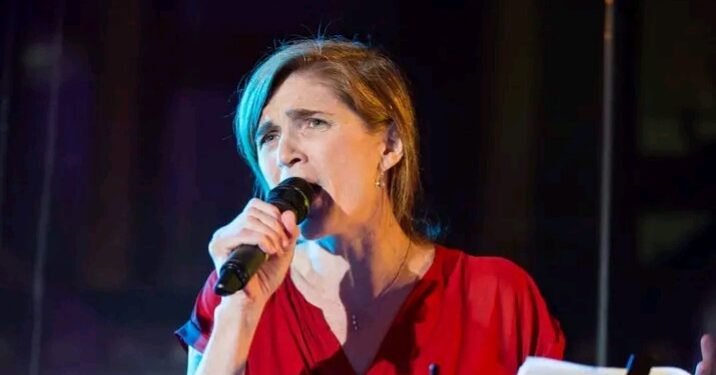The United States Agency for International Development (USAID) has concluded plan to invest $2.6 billion in foreign assistance programs that promote gender equality, doubling the previous investment.
USAID Administrator, Samantha Power disclosed this while making her remarks at the launch of United States Global Women’s Economic Security Strategy on Wednesday.
Adding that the investment will be achieved not by cutting back on things like climate resilience or economic growth funding, but by investing in gender equality as a means of furthering these goals.

According to her, “Our flagship investment in this effort that you’ve already heard much talked about is our Gender Equity and Equality Action, or GEEA Fund, which is starting with three hundred million dollars. We are excited to roll out this fund today.
“While you’ll be hearing more in the coming sessions about the initiatives that this new fund is going to support, but let me start by sharing just one. We are going to scale a program that I just love called Engendering Industries”.
Power further said, “So, launching this strategy, of course, as Secretary Blinken, Director Klein, Kat, and others know and have spoken to, of course, advances cause of justice. To not empower women or set out to do so would be abetting the cause of injustice.
“But today’s launch is also born of a really important recognition that I think is permeating more quarters than it ever has before, and it’s the recognition of a very, very simple fact.
“Which is that we just can’t solve the greatest challenges of our time without empowering women economically. It just can’t be done. It’s structurally impossible”, she said.
Citing an example, USAID Administrator said the mounting food crisis that is harming, devastating to many communities around the world. “This is a crisis to be sure, driven by drought, driven by conflict, including Putin’s invasion of Ukraine.
“But there’s something else, as you well know, that’s long fueled food insecurity, and compounds it right now when it is hurting so many people and that is sexism.

“Women farmers who comprise nearly half the workforce in developing nations, are often shut out of the training, the resources, and the land that they need to be maximally productive.
“Simply getting women farmers the same agricultural inputs, just the same, no more as their male counterparts could lift up to 150 million people out of hunger. That is within our reach to do”, she boasted.
Taking extreme poverty as another example which is one of the world’s toughest problems that need to be tackled, she said the world is currently living through the first increase in the number of people living in extreme poverty in two decades.
“If we want to reverse this crisis though, we don’t need to look far. The biggest source of untapped economic growth potential on planet Earth is unemployed and underemployed women.
“As you’ve heard Director Klein and Secretary Blinken note, closing the gender gap in the global workforce could add $28 trillion to global GDP. Think of how many boats would rise in such a scenario”, she stated.
She pointed out that if the world remove the barriers that keep women from fully contributing to their communities, adding that removing those barriers creates a better world for everybody.
Furthermore, she said the strategy United States is launching today marshals the energy, determination, and the New Year’s Resolutions of people working across agencies and issue areas in the U.S. government to advance this effort.
“At energy companies around the world women hold just 22 percent of jobs and 14 percent of senior roles. Which means that an industry if you read the newspaper, seriously in need of innovation, rarely benefits from the skills and insights of a significant and very talented portion of the population.
“So, starting back in 2015, USAID’s Engendering Industries program began offering training to gender equality champions of all gender identities at energy companies, providing them with customized change management coaching to help them drive progress within their companies.
“One of those gender equality champions who partnered with this initiative, Engendering Industries in Jordan, is an engineer named Reem Hamdan.
“When Reem first started as an electrical engineer her male managers at her company refused to train her, telling her that she’d last only a few months.
“But she proved them wrong, and she rose through the ranks at the company where she worked, which is called EDCO. Eventually, using the training and coaching from this USAID flagship program, Engendering Industries.
“She used that coaching also to help herself, and to develop confidence to put herself forward when she knew she had the goods, but also to help other women at this company, EDCO, to help them advance as well.
“EDCO has about 1,500 employees. Since Reem started partnering with Engendering Industries, EDCO has increased the number of women employees by 21 percent and Reem has risen to become the first C.E.O. of an electrical company in Jordan’s history.
“Now this is a stunning accomplishment given that just 3 percent of companies in the Middle East have a woman as C.E.O. And, again, this is the kind of thing that we can scale and we can expand, and we are really excited to do so.
“So, when something is working and we have proof of concept – we know it is working – it is a really good idea, generally speaking, to expand its reach.
“And if we are to exceed, succeed in advancing the rights and prosperity of women globally, and if we are to succeed in tackling the toughest challenges of our time, we need to do just that”, Power said.














